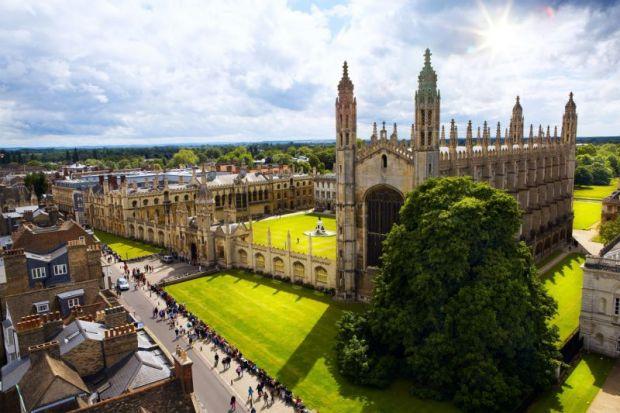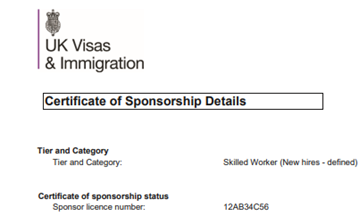Metal Working Production and Maintenance Fitters, classified under SOC Code 5223, are skilled technicians who play a crucial role in the manufacture and maintenance of metal products across a variety of industries. Their expertise encompasses a wide range of responsibilities, including:
- Examining Drawings and Specifications:
- Determines appropriate methods and sequences of operations for metalworking tasks.
- Fitting and Assembling:
- Works with parts and metal sub-assemblies to fine tolerances, contributing to the production of:
- Marine engines
- Prototype metal products
- Agricultural machinery
- Machine tools
- General Assembly Tasks:
- Fits and assembles other prepared parts and sub-assemblies without fine tolerances, producing:
- Motor vehicles
- Printing and agricultural machinery
- Orthopaedic appliances
- Other metal goods
- Engine Maintenance:
- Examines operation and makes adjustments to internal combustion engines and motor vehicles.
- Erection and Installation:
- Erects, installs, repairs, and services various plant and industrial machinery, including:
- Railway stock
- Textile machines
- Coin-operated machines
- Locks
- Sewing machines
- Bicycles
- Gas and oil appliances
With the growing demand for precision engineering and metalworking skills in the UK, there is an increasing need for qualified Metal Working Production and Maintenance Fitters. This demand encourages many companies to seek talent from overseas. This guide aims to assist HR professionals in understanding the process of hiring and sponsoring skilled fitters under the UK’s immigration framework.
What is SOC Code 3411 for Metal working production and maintenance fitters?
SOC Code 5223 refers to metal working production and maintenance fitters who are skilled in the assembly, fitting, and maintenance of various metal products. Their responsibilities can include:
- Examining drawings and specifications: Determining appropriate methods and sequence of operations for assembly and fitting.
- Fitting and assembling parts: Working with metal sub-assemblies to fine tolerances to manufacture marine engines, prototype metal products, agricultural machinery, and machine tools.
- Assembling prepared parts: Fitting and assembling components that do not require fine tolerances for motor vehicles, printing and agricultural machinery, orthopaedic appliances, and other metal goods.
- Examining and adjusting engines: Inspecting the operation of internal combustion engines and making necessary adjustments to motor vehicles.
- Erecting and installing machinery: Installing and repairing plant and industrial machinery, including railway stock, textile machines, coin-operated machines, locks, sewing machines, bicycles, and gas and oil appliances.
Metal working production and maintenance fitters play a vital role in ensuring the functionality and efficiency of machinery and equipment across various industries, contributing to production capabilities and operational success.
Eligibility to Hire Metal working production and maintenance fitters (SOC Code 3411)
1. Job Requirements
Metal working production and maintenance fitters must exhibit strong technical knowledge and practical skills, and meet specific qualifications and experience criteria. These may include:
- Technical Proficiency: Ability to read and interpret technical drawings and specifications to determine appropriate methods and sequence of operations.
- Assembly Skills: Experience in fitting and assembling metal parts and sub-assemblies to fine tolerances, specifically in the production of marine engines, prototype metal products, agricultural machinery, and machine tools.
- Broad Application: Ability to fit and assemble parts to less fine tolerances for a range of products, including motor vehicles, printing machinery, orthopaedic appliances, and other metal goods.
- Mechanical Aptitude: Capable of examining the operation of internal combustion engines and motor vehicles, making necessary adjustments for optimal performance.
- Installation and Maintenance: Skills in erecting, installing, repairing, and servicing various forms of plant and industrial machinery, including but not limited to railway stock, textile machines, coin-operated machines, locks, sewing machines, bicycles, and both gas and oil appliances.
- Education and Experience: While formal certifications may not always be required, training in mechanical engineering or a related field is advantageous for understanding complex machinery systems.
Ensure that the job description aligns with SOC Code 5223 and that the applicant’s experience and skills meet the expectations for the role.
- Salary Thresholds
- Use the Minimum Salary Calculator to ensure your salary offer meets immigration requirements.
Sponsoring Metal working production and maintenance fitters: A Step-by-Step Guide for HR Professionals
Once you’ve confirmed that the role and candidate meet the eligibility requirements, follow this step-by-step guide to sponsoring Metal working production and maintenance fitters under SOC Code 5223.
Step 1: Obtain a Sponsor Licence
Before hiring non-UK Metal working production and maintenance fitters, your company or institution must obtain a sponsor licence. This licence enables you to legally sponsor overseas Metal working production and maintenance fitters under the Skilled Worker Visa program.
- Sponsor Licence Application: Submit documentation proving that your business is legitimate and has a genuine vacancy. Visit the sponsor licence application guide for more information.
- Sponsor Licence Fees: Small businesses typically pay £574, while larger institutions pay £1,579. For more information, visit the sponsor licence fees guide.
- Processing Time: Applications typically take up to 8 weeks, but using the Sponsor Licence Priority Service can reduce the processing time to 10 working days.
Once your sponsor licence is approved, you will receive a sponsor licence number, which allows you to assign Certificates of Sponsorship (CoS).
Step 2: Assign a Certificate of Sponsorship (CoS)
Once you have your sponsor licence, the next step is to assign a CoS to the Metal working production and maintenance fitters. This document provides key details about the job and the individual being sponsored.
- Defined vs Undefined CoS: Use a Defined CoS for Metal working production and maintenance fitters applying from outside the UK, and an Undefined CoS for those already in the UK. Learn more in the Defined & Undefined Certificates of Sponsorship guide.
- Required Documents: Provide details such as the Metal working production and maintenance fitters’s portfolio, passport and job offer. Refer to Documents Required for Certificate of Sponsorship for a full list of necessary documents.
Step 3: Apply for the Skilled Worker Visa
Once the CoS is issued, the Metal working production and maintenance fitters can apply for the Skilled Worker Visa.
- Visa Fees: Fees vary depending on the role and visa length—use the visa fees calculator to estimate the costs.
- Immigration Skills Charge: Employers are required to pay this charge as part of sponsoring non-UK workers. This is separate from visa fees.
Conducting a Right to Work Check for Metal working production and maintenance fitters
Before the Metal working production and maintenance fitters begins working, you must conduct a right to work check to ensure they are legally allowed to work in the UK.
- Manual Right to Work Check: Verify original documents such as the Metal working production and maintenance fitters’s passport and visa.
- Online Right to Work Check: If the Metal working production and maintenance fitters holds an eVisa, you can use the UK government’s online system to verify their right-to-work status.
For more details on how to perform these checks, see the right to work check guide.
Post-Hiring Responsibilities and Compliance
- Record-Keeping and Reporting
- Record-Keeping: Maintain accurate and up-to-date records of the Metal working production and maintenance fitters’s employment details, salary and contact information.
- Reporting Changes: Report any significant changes to the Metal working production and maintenance fitters’s role—such as promotions or salary increases—via the Sponsor Management System (SMS).
- Sponsor Licence Duties and Compliance
- Failure to comply with your sponsor licence duties can result in penalties or sponsor licence revocation, impacting your ability to sponsor future Metal working production and maintenance fitterss.
How Borderless Can Help with Sponsoring Metal working production and maintenance fitters
Sponsoring Metal working production and maintenance fitters under SOC Code 5223 can be a complex process, but Borderless can simplify it for you. We offer comprehensive support to help you manage the entire sponsorship process.
End-to-End Sponsorship Support
At Borderless, we assist with:
- Sponsor Licence Application: Guiding you through the application process and ensuring all required documents are submitted correctly.
- Certificate of Sponsorship Assignment: Streamlining the CoS process to make hiring easier.
- Compliance Management: Helping you stay compliant with immigration laws to avoid penalties.
If you need assistance with hiring or sponsoring Metal working production and maintenance fitters, get in touch for personalised support.
Conclusion
Hiring and sponsoring Metal working production and maintenance fitters under SOC Code 5223 can be a rewarding way to enrich the cultural landscape of your organisation. By following the steps outlined in this guide, you can successfully navigate the sponsorship process while ensuring compliance with UK immigration laws.
For further guidance, Borderless is ready to assist you with all your sponsorship needs. Contact us for expert advice.
Automate Home Office Audits with Borderless
The Borderless platform provides a centralized system for all sponsorships, automating reminders for key tasks and ensuring best practices across your organization, simplifying audit preparation and ongoing compliance.






